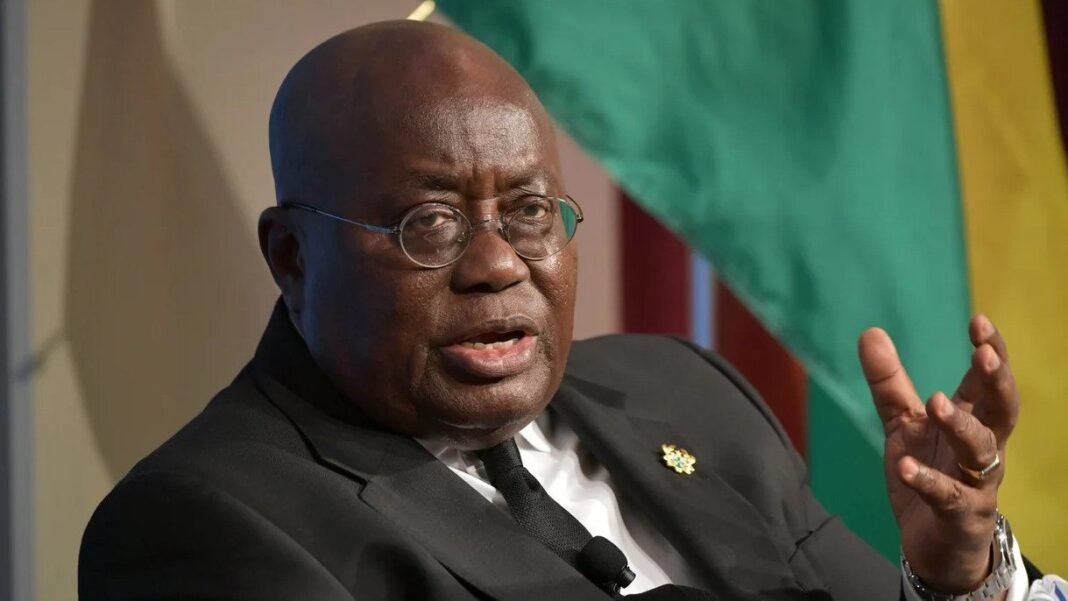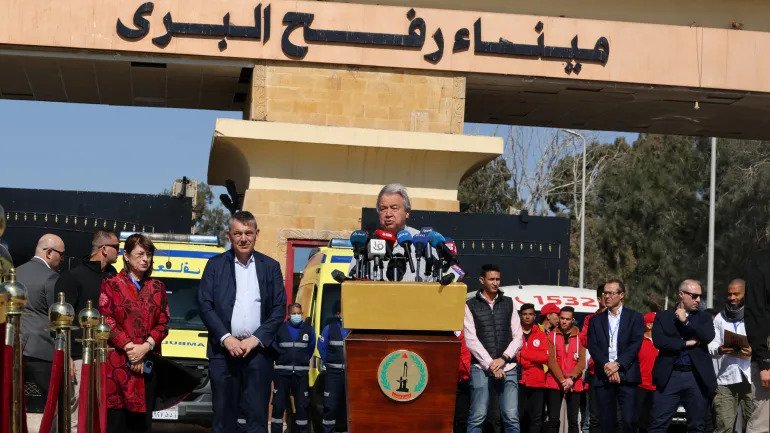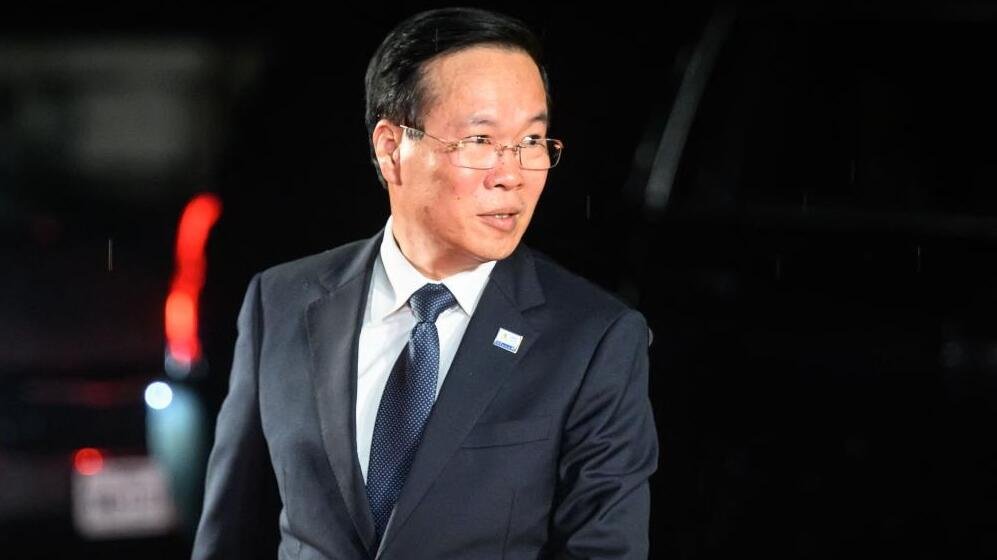The Speaker of Ghana’s parliament, Alban Bagbin, has intervened to halt the approval of new ministers amidst a dispute over the president’s delay in endorsing an anti-LGBTQ+ bill passed recently.
The presidency has requested that parliament withhold the bill for the president’s assent until legal challenges against it are resolved.
The speaker has criticized the presidency’s action as “contemptuous.”
The bill criminalizes homosexual relationships and those who advocate for them.
President Nana Akufo-Addo faces significant pressure from Ghanaians pushing for its enactment, as well as from Western donors and human rights organizations urging him to refrain from endorsing it.
A legal challenge against the bill has been mounted at the Supreme Court, alleging that there was not a quorum—the required minimum number of MPs—in parliament when it was passed.
In a letter to parliament on Monday, presidential secretary Nana Asante Bediatuo stated that it was “improper” for the president to receive the bill until the court reaches a decision on the matter.
Subsequently, on Wednesday, Speaker of Parliament Alban Bagbin suspended the approval of new ministers and their deputies, seemingly to exert pressure on the president.
Mr. Bagbin informed MPs, “The president’s refusal to accept the transmission of the bill is, by all accounts, not supported by the constitutional and statutory provisions that guide our legislative process.”
He asserted that parliament could not endorse new ministers, stating that the “ongoing scenario poses a grave threat to our legislative authority.”
Last month, President Akufo-Addo nominated 12 ministers and deputy ministers in a significant cabinet reshuffle that resulted in the dismissal of the finance minister. The new ministers were undergoing vetting by a parliamentary committee.
The minority leader in parliament, Cassiel Ato Forson, backed Mr. Bagbin’s action, stating that the speaker’s concern was valid.
However, parliamentary majority leader Alexander Afenyo-Markin criticized the speaker’s decision as “disappointing” and “strange”, arguing that broader consultation should have preceded it.
John Mahama, the main opposition presidential candidate in the December polls, deemed the letter from the presidency unconstitutional, asserting that the presidential secretary lacked the authority to address such a letter to parliament.
The proposed stringent legislation—the Proper Human Sexual Rights and Ghanaian Family Values Bill—gained support from both of Ghana’s major political parties.
It mandates imprisonment for up to three years for individuals identifying as LGBTQ+ and five years for promoting their activities.
The bill has received backing from influential Christian and Muslim leaders.
President Akufo-Addo had previously indicated his readiness to endorse it if the majority of Ghanaians favored it.
However, he is now endeavoring to reassure the international community of Ghana’s commitment to upholding human rights.
Ghana’s finance ministry warned that the country could lose a total of $3.8bn (£3bn) in World Bank funding over the next five to six years due to the bill.
The West African nation is grappling with a significant economic crisis and received a bailout from the International Monetary Fund (IMF) last year.
It is improbable that the Supreme Court will deliver a verdict on the case before the presidential and parliamentary elections scheduled for December.




